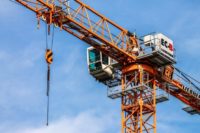When a construction contractor (including subcontractors, material suppliers, etc.) is not paid for its work, the contractor is entitled to record a mechanic’s lien against the private property where the work was performed. The mechanic’s lien secures the contractor’s right to payment against the real property that was improved by its labor. This greatly improves the contractor’s ability to collect payment for its work.
Beginning January 1, 2011, construction contractors that are entitled to record a mechanic’s lien must follow a few new procedures. In addition to the former requirements of recording a mechanic’s lien and timely filing a lawsuit to foreclose the lien, contractors must now give a statutory Notice of Mechanic’s Lien to the owner of the property. They must also complete a proof of service proving that they served the Notice. Additionally, once a foreclosure suit is filed with the court, the contractor must record a Notice of Pendency of the Proceedings with the County Recorder within twenty days.
A construction contractor’s failure to follow these new procedures will result in the mechanic’s lien being unenforceable, which is a steep penalty. Although that would not cancel the underlying debt owed to the contractor, it would mean that the contractor has lost a helpful mechanism in its collection efforts.
The reason for the new requirements makes good sense. Previously, some private property owners were unaware of a payment dispute between the general contractor and its subcontractors until they received a subcontractor’s lawsuit to foreclose on the property. This was often after the owner had fully paid the general contractor and the project was completed. By requiring construction contractors to provide the Notice to the property owner at the time the mechanic’s lien is recorded, the laws mandate that both sides know of the payment dispute in a timely manner. This may give them time to negotiate a resolution before a lawsuit is filed.
The changes also prevent the circumstance that plagues private property owners who are trying to sell or refinance their property, only to discover a mechanic’s lien was recorded against the property many years ago. While those mechanic’s liens are invalid if they were not foreclosed within 90 days of being recorded, the property owner may still run into trouble. Escrow companies often refuse to close escrow until all mechanic’s liens are resolved, even if the liens have expired. In that event, a construction attorney’s assistance is often helpful in quickly resolving the problem.
UPDATE: Mechanic’s Lien Laws changed again in July 2012. Review these updated blogs for the changes.
This information is provided for informational purposes only and should not be construed as legal advice. It should not be acted upon without consulting a licensed California attorney about the facts, particular needs and questions of the person or entity considering these issues. Contact this office for assistance with your mechanic’s lien questions.
